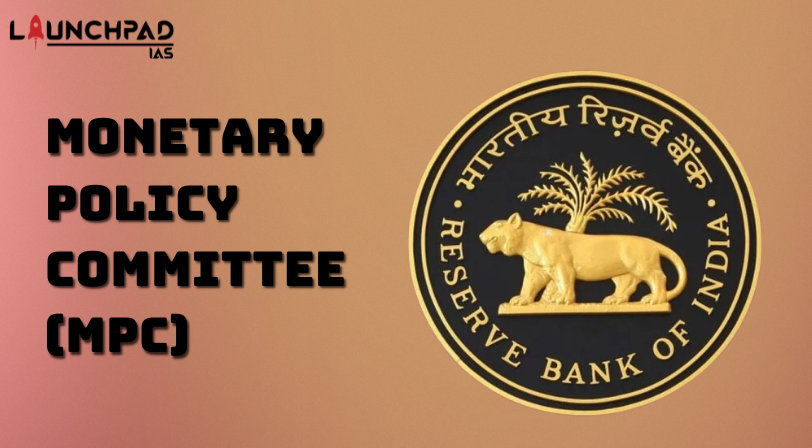About
- Origin: Under Section 45ZB of the amended (in 2016) RBI Act, 1934, the central government is empowered to constitute a six-member Monetary Policy Committee (MPC).
- Objective:
- Further, Section 45ZB lays down that “the Monetary Policy Committee shall determine the Policy Rate required to achieve the inflation target”.
- The decision of the Monetary Policy Committee shall be binding on the Bank.
- Composition: Section 45ZB says the MPC shall consist of 6 members:
- RBI Governor as its ex officio chairperson,
- Deputy Governor in charge of monetary policy,
- An officer of the Bank to be nominated by the Central Board,
- Three persons are to be appointed by the central government.
- This category of appointments must be from “persons of ability, integrity and standing, having knowledge and experience in the field of economics or banking or finance or monetary policy”.
Functions of MPC
The Monetary Policy Committee (MPC) has several important functions:
- The MPC formulates the monetary policy of India. It sets the target for inflation and determines the appropriate policy interest rate to achieve that target.
- One of the key functions of the MPC is to target inflation and maintain price stability in the economy. It aims to keep inflation within a specified range, which is currently set at 4% with a tolerance band of +/- 2%.
- The MPC decides on the repo rate, which is the rate at which the central bank lends money to commercial banks. By adjusting the repo rate, the MPC influences borrowing costs for businesses and individuals. It thereby impacts economic activity and inflation.
- The MPC analyzes various economic and financial indicators to assess the current and future state of the economy. This includes examining factors such as GDP growth, inflation trends, employment levels, and global economic conditions.
- The MPC communicates its policy decisions and the rationale behind them to the public and financial markets. This transparency helps in maintaining credibility and managing market expectations.
Importance of Monetary Policy Committee
- Economic Stability: MPC is vital in ensuring stability by regulating key economic indicators like inflation and interest rates.
- Inflation Control: It helps control inflation, maintaining price stability crucial for sustainable economic growth.
- Interest Rate Management: MPC sets benchmark interest rates, influencing borrowing costs, spending, and investment.
- Predictable Policy Framework: Provides a transparent and predictable monetary policy framework, aiding businesses and investors in decision-making.
- Government and RBI Collaboration: Fosters collaboration between the government and the Reserve Bank of India in shaping monetary policies.
- Expertise Inclusion: Comprising experts from diverse fields, the MPC brings a comprehensive understanding of economic nuances.
- Public Accountability: Enhances accountability as MPC decisions are public, ensuring scrutiny and understanding of policy choices.


